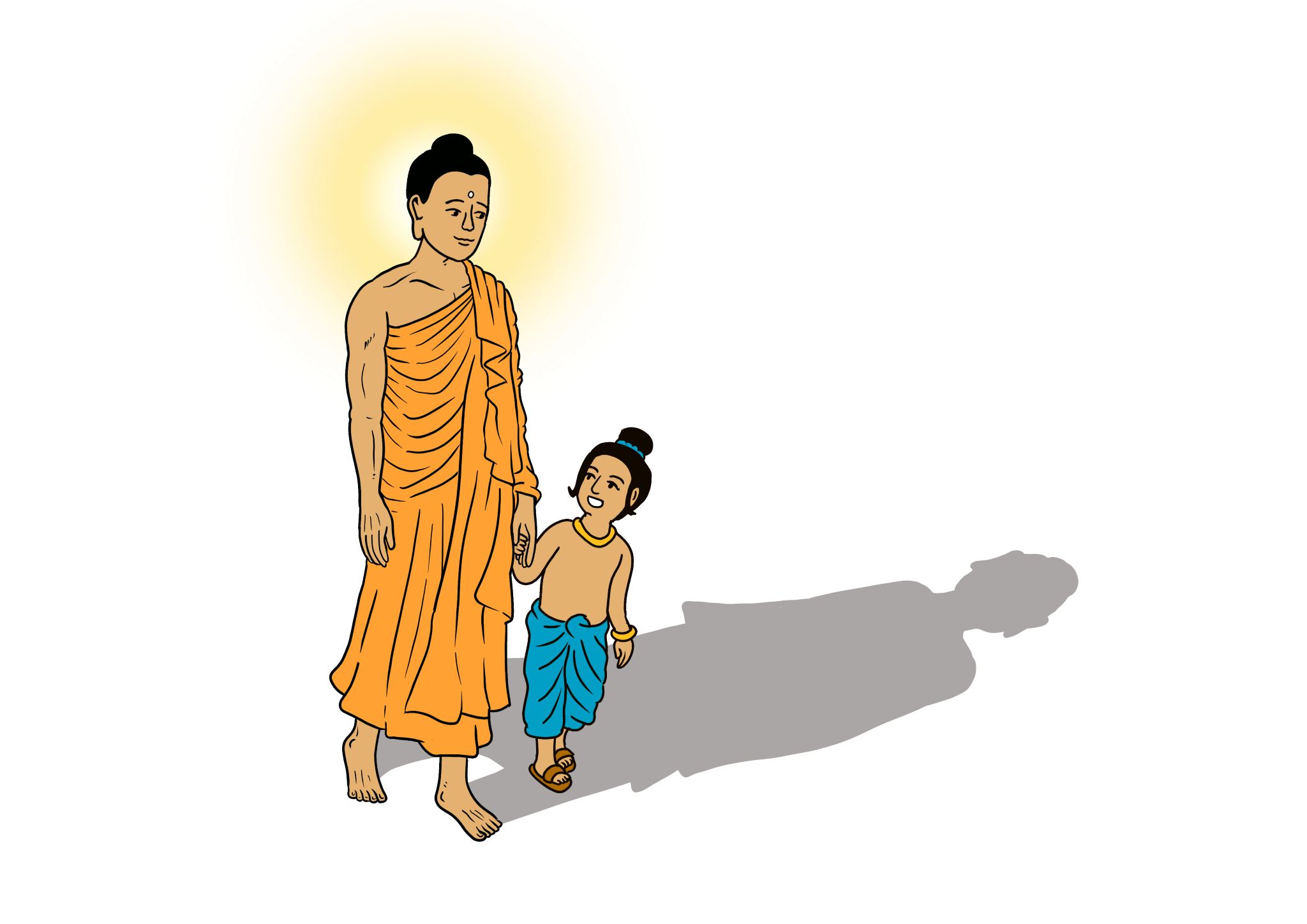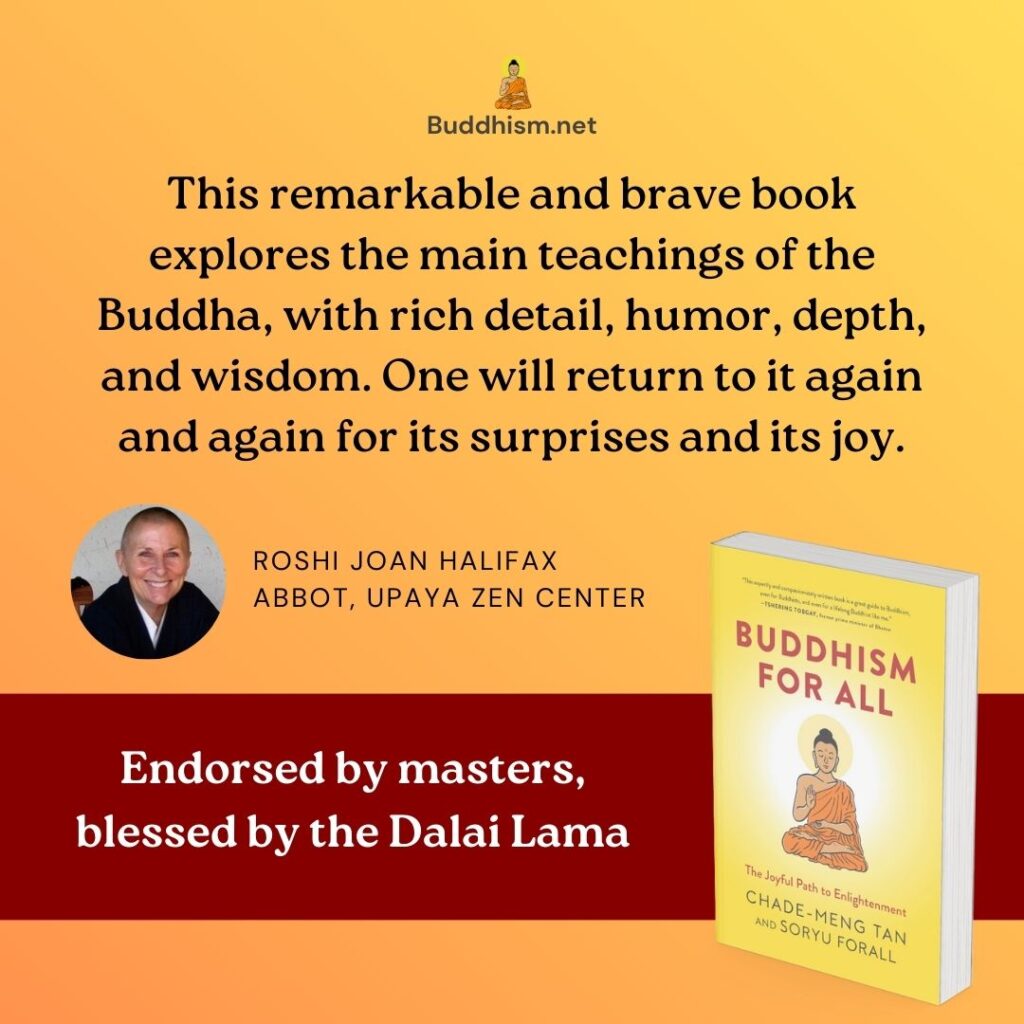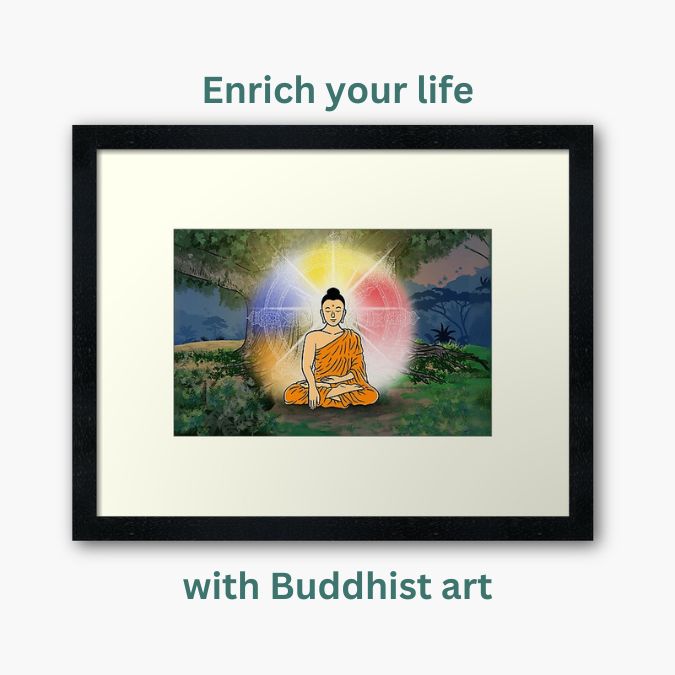
Meng’s Epilogue: It Is So Pleasant to Be In Your Shadow
Siddhattha left home to seek enlightenment shortly after his son, Rāhula, was born. After six years of intense struggle, Siddhattha gained full enlightenment and became the Buddha. When he came home to visit his family a year later, Rāhula was already seven years old.
As the Buddha approached the palace, Rāhula’s mother, Princess Yasodharā, pointed to the Buddha in the distance and instructed her son, “That man is your father, go to him and ask for your inheritance.”
Rāhula ran towards the Buddha and then walked alongside him. It was presumably a hot day and Rāhula kept himself shaded in the Buddha’s shadow. After a while, little Rāhula looked up to the Buddha with a smile and said, “It is so pleasant to be in your shadow.”
That last sentence resonated with me to my core. It felt like the perfect metaphor for me. All I really want is to be in the shadow of the Buddha.
To the Buddha, I want to say, “Thank you for your shadow, beloved old man.”
Soryu’s Epilogue: We Must Cast Our Own Shadow
When I was about the age Rāhula was when he finally got to walk in his father’s shadow, I realized I didn’t have anyone’s shadow to walk in.
It was clear then, in the early 1980’s, that humans were killing life on this planet. Furthermore, the rate at which our greed and hatred were destroying living beings was increasing. In fact, that had been clear for decades, but it was so obvious then that even a child could understand it.
I realized that no one was dealing with this issue, and in fact no one had ever dealt with it. Somebody had to do something. I had to. It haunted me for many years.
As I considered how to deal with these humans who were destroying the planet, I never thought I would study Buddhism, and certainly never thought that I would teach it. I assumed I would create a big non-profit. Or, if not that, then I would be an entrepreneur who would invent a technology that would solve the problems of the world. Or if not that, then I’d be a politician who would create the policies that would finally save the world and make people happy. But I realized that those professions don’t solve the actual problem.
I looked for those who have done good work in this area. I found that the person who did the most to prevent humans from making ourselves miserable and destroying the world was the Buddha, and that the tradition that has done the best work in this area is Buddhism. The Buddha discovered the most important information: how to resolve suffering and make people trustworthy. So I set out to learn his teachings and practice his methods, and shift history from increasing destruction of life on earth to flourishing of life on earth. We thank him for doing so much good for so many living beings. Yet even he didn’t solve our problems. Here we are, thousands of years later, facing existential crisis. The Buddha can show the way, but we must walk it. That is a matter of working with our own minds. We have to work with our minds because the major crises today are all caused by the human mind.
The Buddha said that our minds are the most harmful thing in the world. The next thing he said was that our minds are the most beneficial thing in the world.[1] If our minds are trapped in greed, hatred and insanity, then they are the most harmful thing in the world. They will literally kill everyone. If our minds are well trained, having learned how to make ethical choices, enter spiritual wonder and bliss, and gain insight beyond birth and death, then they are the most beneficial, the most wonderful, the most magnificent, the most beautiful, the most good, the most true thing in the world. They will literally save everyone.
The problems we have created in the world are now so big, so serious and so intractable that those who solve them must be the greatest people who ever lived. That can be us. It’s time for all of us to become the greatest people who ever lived.
May we walk the path the Buddha set forth. May we walk it fully, and when we come to the end, may we take a further step. May we do this for the benefit of all living things.
[1] Aṅguttara Nikāya 1.27-30.
Artwork by Colin Goh.


